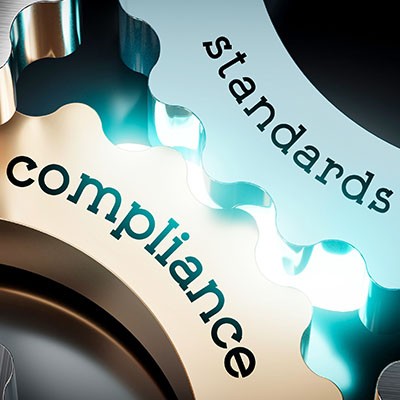When you think of the words “compliance” and “your business” together in the same sentence, does the idea strike fear and dread into your heart? Businesses that fail to remain compliant could suffer severe penalties. It’s not always clear-cut what compliances your organization might need to adhere to, but we can help you implement the technology to ensure you remain compliant.
Here are the IT needs for any business that needs to maintain some level of compliance with various industry standards.
Small and Medium-Sized Businesses Have Unique IT Compliance Needs
First, let’s establish some context so you can have the best understanding of compliance and what it does for businesses and consumers alike.
By definition, IT compliance is a business’ practice of abiding by various regulatory requirements that pertain to the use of technology as a means of ensuring the security of client or customer data.
These regulations come from different ruling bodies for different industries. For example, some are established by law for specific industries, like the Health Insurance Portability and Accountability Act (HIPAA) or an industry regulation like the Payment Card Industry Digital Security Standard (PCI DSS). If you fail to comply with these standards and regulations, there are consequences ranging from monetary fines to lost privileges.
In short, these fines are something you should take seriously.
These fines could hit you hard, depending on how severe the breach. For example, one business that violated the European Union’s General Data Protection Regulation (GDPR) could be fined 20 million euros or four percent of their global turnovers. It defaults to a higher penalty, too.
There are other regulations to consider, and it all depends on your industry and what kind of services you provide.
Various Common Compliance Standards with IT Ramifications
For a quick reference, you can use the following list to see what standards your business might be subject to, as well as how IT can help you address the problem at hand:
- HIPAA (The Health Insurance Portability and Accountability Act): Amongst other requirements, HIPAA establishes standards regarding patient information confidentiality and security for the healthcare industry and any affiliated parties.
- NIST SP 800-171: This standard, established by the National Institute of Standards and Technology, places various cybersecurity requirements on businesses working with federal and state agencies in the U.S.
- GDPR (The General Data Protection Regulation): This law, established to protect the information of European Union citizens and residents, applies to any company—globally—that utilizes this data.
- PCI-DSS (The Payment Card Industry Data Security Standard): This standard, implemented by the PCI Security Standards Council, puts data security requirements on any business that wants the ability to accept payments via card.
This is just a small selection of the more well-known and common standards, but your business could be subject to others. We recommend you contact us if you have any questions or concerns about IT compliance.
Don’t Go About Compliance Alone
Business Solutions & Software Group provides IT services and assistance with compliance standards for small and medium-sized businesses like yours. To learn more, call us at (954) 575-3992 today.


Comments